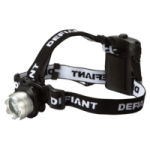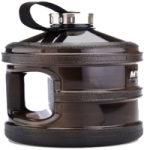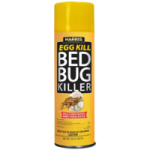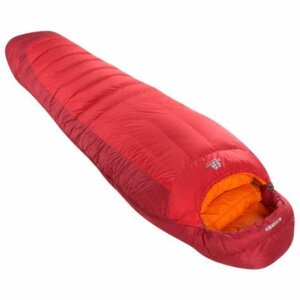MOUNT KILIMANJARO TREKKING ESSENTIAL ITEMS:

Solid Hiking Boots– Boots should have high ankle support with a solid Vibram®, or equivalent, sole. Gore Tex®, or other waterproofing, is recommended to have for wet days as well as added insulation. Be sure to break your boots in at least 4 WEEKS prior to departure. Additionally, bring a spare set of laces.

Sun Glasses – Your sunglasses should have 100% UV protection and should reduce glare as well as visible light. The frames should be lightweight with a wrap-around design for enhanced grip and staying power. Additionally, side shields are recommended to block peripheral light.

Day Pack – The most important things to look for if you need to purchase one are the size (30L is good), hydration pack compatibility, hip and chest straps, internal frame, good padding on shoulder straps, and water bottle holders.

Water/Windproof Jacket – Your water/windproof jacket is your outer water-repellent layer. Gore-Tex, seam-sealed is recommended as well as a hood for added warmth.

Water/Windproof Pants – Your water/windproof pants will be worn on summit day as well as on rainy afternoons. These pants are essential for warmth and should be Gore-Tex lined and have lower leg zips.

Water/Windproof Mittens or Gloves – These are used for extreme temperatures and primarily worn on summit day. Be sure your gloves or mittens have a wrist cord as well as a reinforced palm to maintain grip during wet conditions. A removable liner is essential for drying, washing, and replacing.

2 large duffel bags – One we will leave at the hotel in Arusha to store non-essential gear when on the mountain (such as clean clothes for changing when off the mountain and for onward travel) and the other for carriage by the porters when on the mountain.
THINGS TO KEEP IN MIND ABOUT THE ESSENTIALS
Look for items that will add less volume to your overall pack. We will be using porters to carry our equipment however they are limited in the amount each can carry. Heavy synthetic materials will be very limiting and could cause issues when packing up for the hike.

2 pairs of synthetic warm weather trekking socks – These socks are for trekking in the warmest part of the day since they are made of a Coolmax® fabric. What is Coolmax®? – CoolMax® wicks moisture dries quickly and breathes well, keeping your feet dry and preventing blisters.

4 pairs heavier synthetic or wool blend socks – Your wool socks are ideal for around camp when the temperature drops as well as on cold mornings. Merino wool is very comfortable and dries quickly with fewer odours than synthetic blends.

2 pairs long underwear top – This will be your base layer for colder mornings, evenings, and days where the temperature drops considerably. The material is lightweight, tight-fitting, moisture-wicking, and comfortable.

2 pairs long underwear bottom – This will be your bottom base layer for colder mornings, evenings, and days when the temperature drops considerably. The material is lightweight, tight-fitting, moisture-wicking, and comfortable.

Warm pants – These pants are ideal for evenings around the camp and cold days on the trail. Typically made of lightweight fleece and Wind Pro material, these pants should offer the added warmth in case of cold nights or high winds on the summit.

Fleece Top – This Polartec® 200 weight top will provide added warmth during the evenings as well as on a cold morning starts. Please look for fleece material and stay away from cotton sweatshirts. Ideally, this item is worn over the thermal base layer and underneath your water/windproof jacket.

2 pairs Shorts/Pants for Hiking- These convertible shorts/pants will be what we hike in every day. They should be of a lightweight, quick-drying nylon material. Some come with UPF protection and mosquito protection.

2 pairs long or short sleeve shirts for the trail – Your trekking shirt is what we should wear early in the climb in warmer climates. The shirt is moisture-wicking, lightweight, and designed for multi-day hikes.

Mid-Layer Top – This shirt is a long sleeve version of the one provided above. The long sleeve trail shirt offers added warmth, more protection from the sun, and an additional layer for evenings and early morning starts.

Warm Hat – This fleece or wool hat is ideal for evenings and will be valuable in the event of cold weather and temperatures on the summit. The hat should be tight fitting with minimal loose ends.

Lightweight Gloves – Fleece gloves are essential. Look for gloves that are Polartec® 200 weight with leather reinforced palm. For more protection wind proofing is available and will add an extra layer of warmth.

Balaclava – The balaclava provides added warmth on summit day and colder evening. The balaclava should be of synthetic or wool material, lightweight, and close-fitting.

Sun hat – Your sun hat should be worn at the lower camps and should provide ample coverage for the face. A full brimmed hat is good for added shade and increased sun protection. Additionally, a neck scarf should also be considered to protect the back of the neck”.

Waterproof breathable Gaiters – Your gaiters should be lightweight and durable. Look for Gore-Tex lined with the ability to fit over your boots. Velcro or adjustable sides for easy access is recommended.

Down Jacket – 800 fill down jacket will add much need warmth for cold evenings as well as the added layers for summit day. Down is recommended for its compressibility and is comfortable around camp in the early nights on the climb. Patagonia, Mountain Hardware, Marmot, and North Face are brands the guides wear.
ADDITIONAL ITEMS:

Head Lamp- Petzl® and Black Diamond® make several models of small and efficient headlamps. Look for ones that have multiple lighting levels, LED bulbs and uses AAA batteries.
* Please bring at least 3 sets of spare batteries to ensure ample lighting on your summit attempt.

Camp shoes (Teva, Crocs, Sandals) – These are great for around camp after a long day on the trail. These can also be used for creek crossings that may be higher than the boot. Flip flops work well in warmer climates but are not as effective during cold nights.

Hydrator – Hydrators are ideal when hiking for several hours because they enable you to drink slowly and frequently. 2-3 litres is a good size and should fit easily into your pack. All Camel baks® come with a bite valve, or on/off switch, as well as a large access port for filling. You must bring a NEOPRENE SLEEVE for the hose to prevent freezing.

Bug Spray – DEET based products work well and we find that the spray-on versions last longer and are less messy. 4-6 ounce repellents that are the perspiration and splash resistant are great.

Sun Screen – 30 SPF or higher is recommended as well as waterproof and sweatproof. 8 ounces will be plenty and we typically carry one with 45+ SPF for our faces and a 30 SPF for other exposed areas. Banana Boat, REI, Kinesis and All-Terrain are good options.

2 wide mount water bottle – A 1-litre water bottle is essential for hydrating at lunch, around the camp, and refilling throughout the day. Stay away from glass and heavy metals and look for lexan® for durability.
* For males, a third water bottle should be considered for use as a potty at night and must be labelled accordingly.

Sleeping bag–The sleeping bag range of synthetic and down filled sleeping bags are the choice of today’s leading alpinists and arctic explorers. Synthetic sleeping bags like the Lunar & Nova are easier to care for than down sleeping bags and are reliable whilst resilient in severe wet weather conditions.

Dry Bag – A 20 litre + dry bag is great for ensuring your personal items are safe in case of rain. Cameras, wallets, money, and any other valuables can be kept dry at all times.

Pack Cover – The pack cover is an additional item we recommend everyone carry in case we encounter heavy rains. The pack cover should have a drawstring cord and elastic edges to fit firmly over your bag. A 40-litre cover will work well on any day pack.

Trekking Poles – Collapsible poles are great for steep downhill terrain and assistance up the hill. If you have knee problems they reduce the impact on your joints by 20-30%. A nice soft foam grip will help prevent blisters and the poles with an aluminium shaft are durable and lightweight.

Camp Towel – the camp towel should be of a polyester-nylon blend that dries quickly and compacts tightly in your pack. The large (50 X 27 inches) is a good size and can be used to wash up at the end of the day. Stay away from the house or beach towels.
OPTIONAL ITEMS:
- Camera
- Paperback book
- Journal with pen or pencil
- Person First Aid Kiband-aids aids, moleskin or second skin, Ibuprofen, Aspirin)
- Hand sanitizer
- Sani-wipes
- Hand & feet warmers (2X) – Gel/ air activated are best
- Bandanna
- Cell phone (with solar charger e.g. solar monkey charger) since you tri and quad-band phones work on Kilimanjaro
- Flavoured chocolate/energy bars for snacks
- A supply or rehydrate sachets
- 2 extra garbage bags for waterproofing and separating dirty laundry
- Earplugs
- iPod or MP3 player
- Pocket knife
Water-flavoring to mask the iodine taste in the purified water.